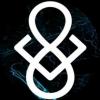I hate to rain on everyone's parade, but we've been hosed. The claim of "43%" greater longevity made by the Russian researchers is misleading, to say the least. I tracked down some details of this experiment in an
excellent book on the medical applications of activated charcoal by David O. Cooney. Here it is: (p.462)
In the primary study, one group of 28-month-old rats was given charcoal in their diets for 10 days, followed by no charcoal for one month. This cycle was repeated until each animal died. Charcoal increased the mean lifespans at 50% mortality from 937 to 977 days, at 80% mortality from 972 to 1023 days, and at 100% mortality from 993 to 1055 days. The mean increases in the lifespans wee 47.3, 41.4, and 43.7%, respectively.
I would call these increases of 4.3%, 5.2%, and 6.2%, respectively. Apparently they are basing their percent increase on the relatively small amount of remaining life after 28 months. Is this some sort of gerontological "standard of the industry"? IMHO, it borders on a fraudulent claim, and strikes me as a scientifically meaningless approach. If you wait until the controls are ready to drop dead, then give the treatment group something that keeps them alive for a few days longer, have you increase "lifespan" by 300%? I don't think so.
I feel like an idiot for having fallen for this seemingly extraordinary claim without looking at the original paper. Live and learn, eh?
To those of us who want to continue to pursue AC, and I do still think it has merit, Cooney also relays this information from the original work, which is rather critically important:
In one group that was fed charcoal in cycles of one month of charcoal plus 10 days of no charcoal, the lifespan increases were much lower than those noted above; hence, there appears to be an optimal schedule of feeding the charcoal.
So it looks like it should be cycled, with more off-time than on-time.



















































